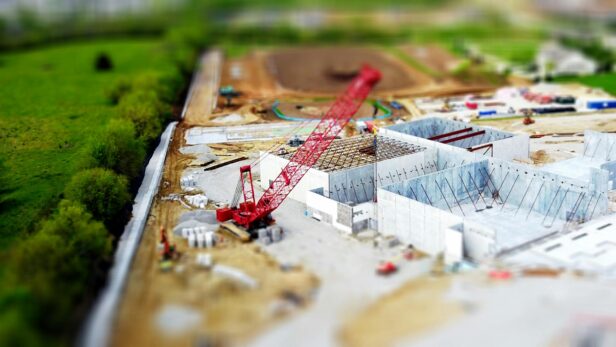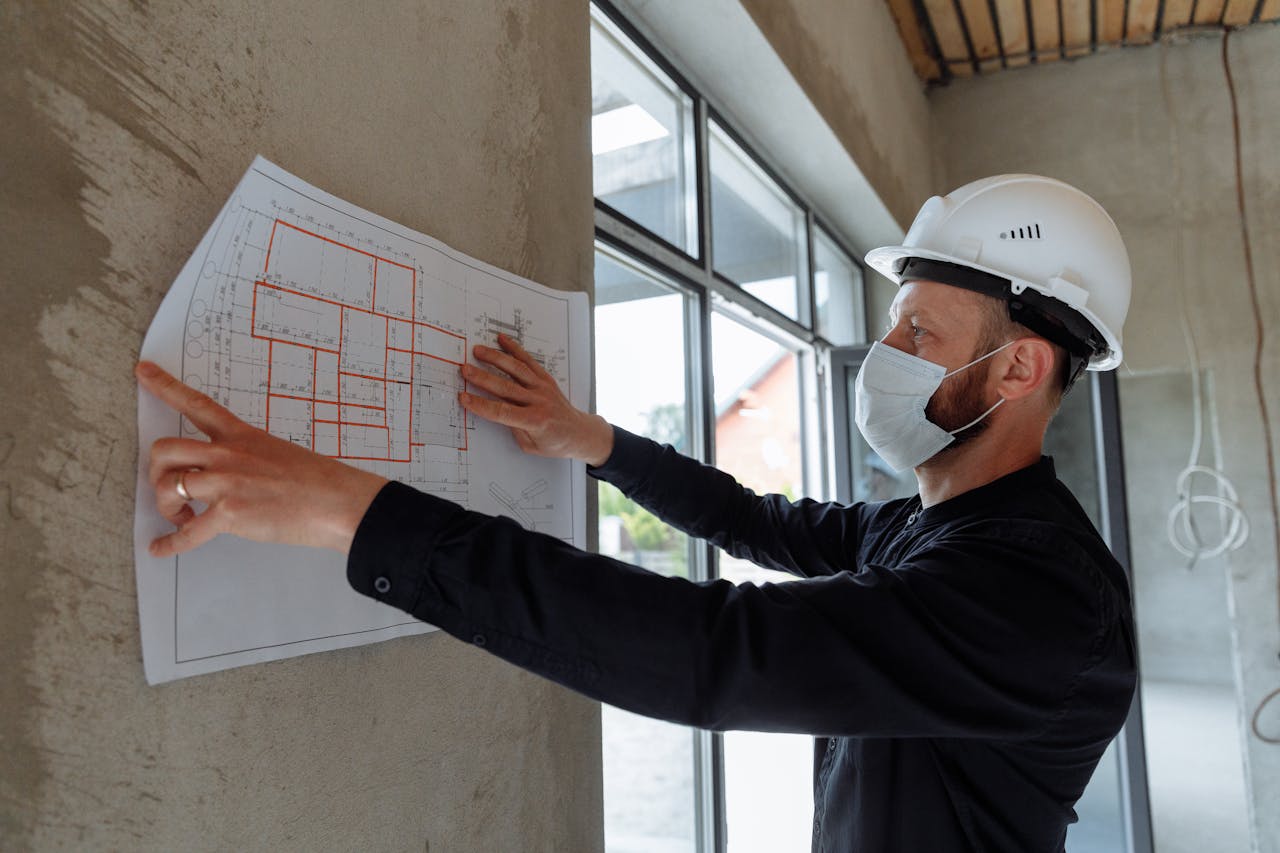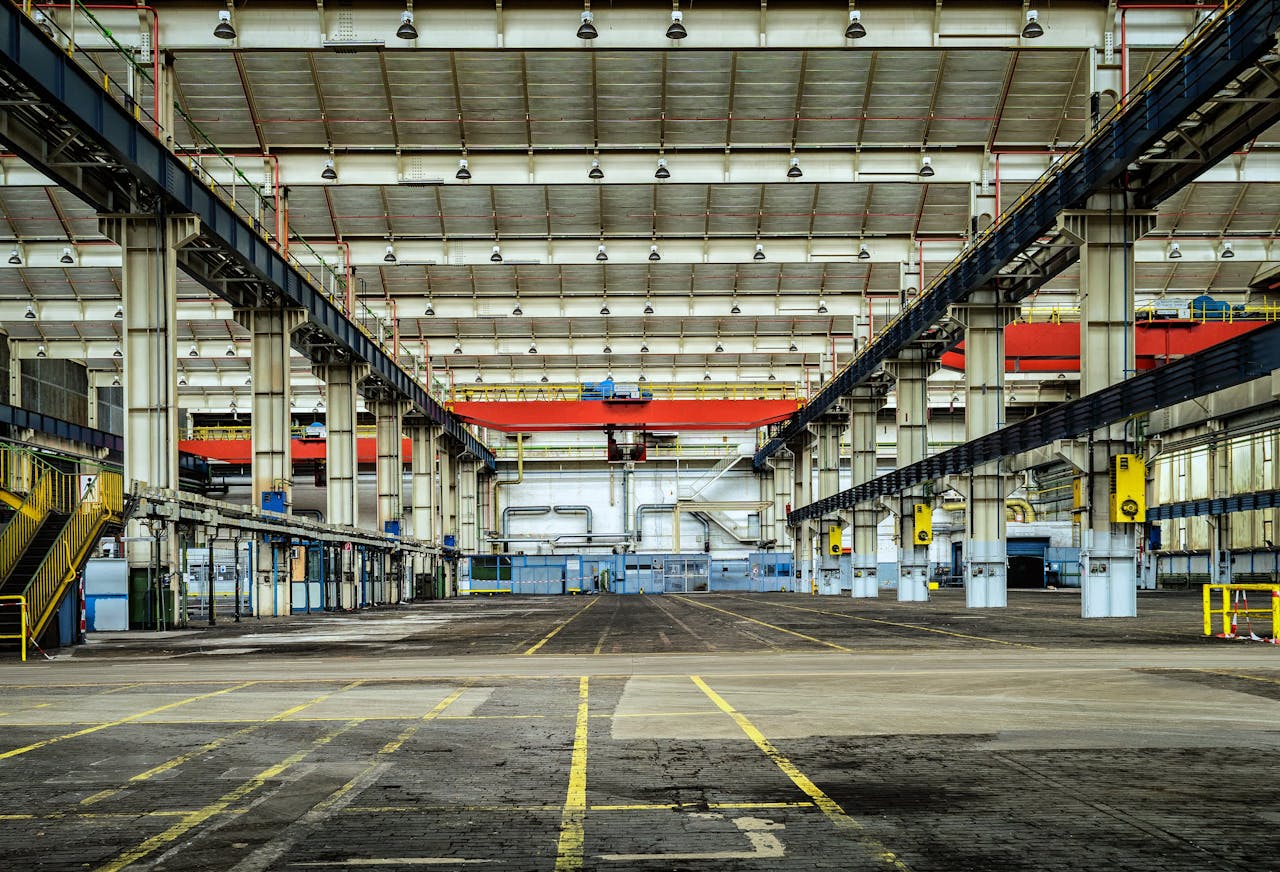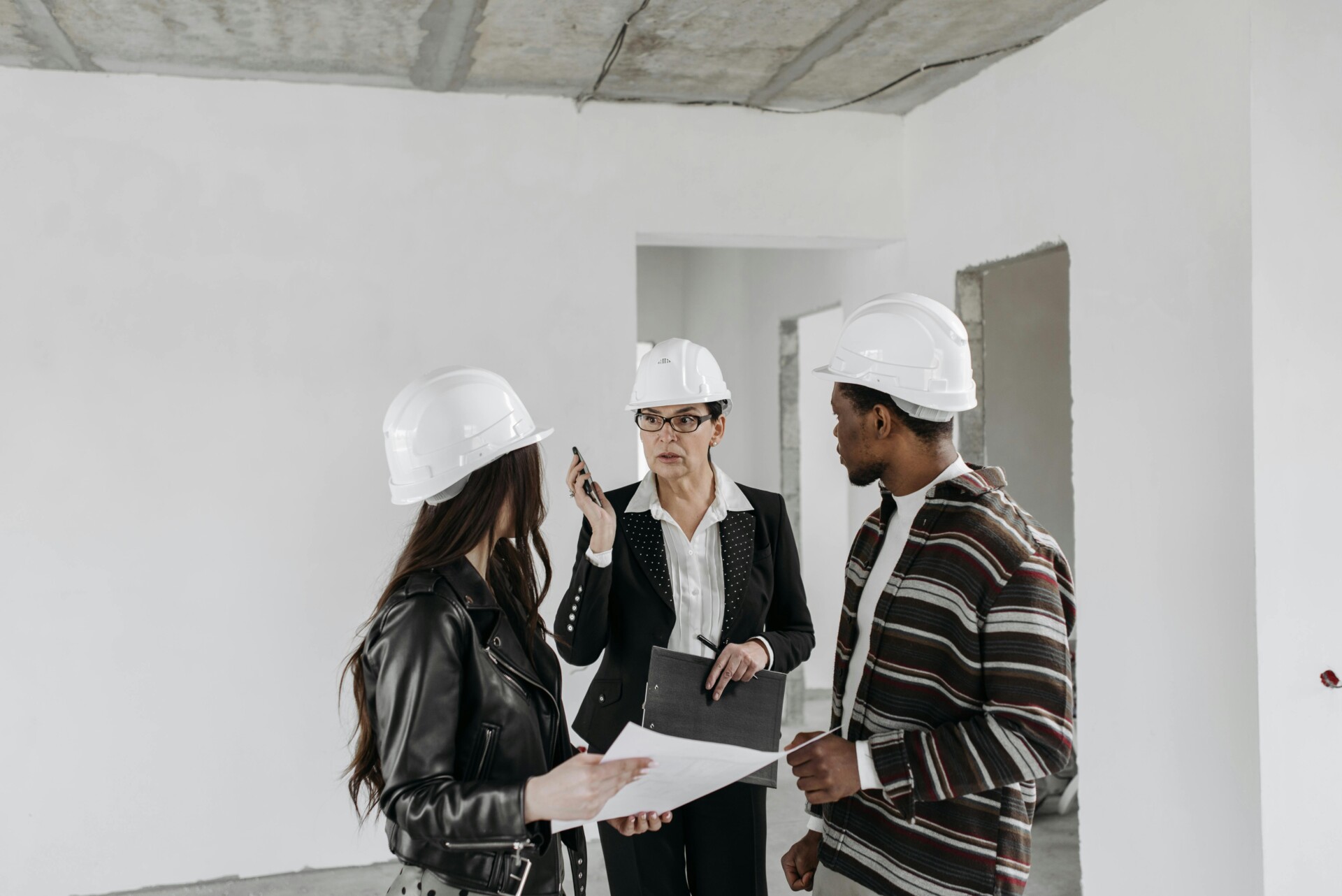When your business needs a new warehouse, office space, or mixed-use development, local commercial builders become your project’s backbone. These specialized contractors focus on non-residential construction within your geographic area, handling everything from industrial facilities and retail centers to hotels and apartment complexes.
We see local commercial builders as partners who understand both the technical demands of commercial construction and the unique requirements of your municipality. Their proximity means faster response times during preconstruction planning, streamlined communication with permitting officials, and hands-on project management that keeps your timeline intact from site analysis through post-construction cleaning.
What Services Should You Expect From Local Commercial Builders?

Local commercial builders offer distinct delivery methods that structure how your project moves from concept to completion. We typically organize services around four core approaches that address different client needs and project complexity.
Primary Delivery Methods
General contracting forms the traditional foundation where we manage all construction activities under a single contract. We coordinate subcontractors, ensure code compliance, and deliver your project according to specifications. Construction management operates differently, with us serving as your advisor throughout the process while you contract directly with trade partners.
Design-build combines planning and construction under one roof, streamlining decision-making and reducing project timelines. When clients need independent oversight, we serve as owner’s representatives, protecting your interests and managing relationships with architects and specialty contractors.
Preconstruction Support Services
Site condition analysis helps us understand existing structures, soil conditions, and utility locations before construction begins. Cost estimating provides detailed breakdowns of materials, labor, and equipment costs to establish realistic budgets. We handle permit assistance by managing paperwork with local authorities and ensuring compliance with zoning requirements.
These preconstruction activities reduce surprises and keep projects on schedule. Early analysis identifies potential challenges while there’s still time to adjust plans and budgets accordingly.
On-Site Construction Capabilities
Site work encompasses everything from excavation and grading to utility installation and paving. Selective demolition allows us to remove specific building elements while preserving surrounding structures. Self-perform operations mean we handle certain trades with our own crews rather than subcontracting every task.
Many builders expand beyond basic construction to include specialized services. Risk management addresses safety protocols and insurance requirements. Supply chain management ensures materials arrive on schedule and within budget specifications.
Advanced Technology and Support Services
Virtual design and construction through Building Information Modeling (BIM) creates detailed 3D models that help visualize projects before construction begins. Studies show that effective preconstruction planning can reduce project costs by up to 19% through better coordination and fewer changes during construction.
Offsite manufacturing allows us to build components in controlled environments, then assemble them on-site for faster completion. Post-construction services include final cleaning, system training, and warranty support to ensure your building operates smoothly from day one.
Additional conveniences like dumpster rental and debris management keep job sites organized and compliant with local regulations. These comprehensive service offerings allow us to manage every aspect of your project from initial planning through final occupancy.
How Do Local Commercial Builders Handle Permits, Planning, And Complex Delivery?
Local commercial builders navigate regulatory requirements through established relationships with city and county permitting offices. We maintain regular communication with local authorities, which helps streamline approval processes and address potential issues before they become delays. This local knowledge proves invaluable when dealing with jurisdiction-specific codes and requirements that can vary significantly between municipalities.
Preconstruction Planning And Early Site Analysis
We begin preconstruction planning with comprehensive site analysis to identify potential challenges early in the process. This includes evaluating soil conditions, existing infrastructure, and environmental factors that could impact construction schedules or budgets. Early budgeting during this phase helps establish realistic cost expectations and reduces the likelihood of unexpected expenses during construction.
Detailed project specifications emerge from this planning phase, covering everything from materials and methods to timeline expectations. We coordinate with architects and engineers to ensure designs align with local building codes and zoning requirements. This collaborative approach during preconstruction planning minimizes change orders and keeps projects on track.
Project Management And Stakeholder Coordination
End-to-end project management involves coordinating multiple stakeholders throughout the construction process. We manage communication between property owners, architects, engineers, subcontractors, and regulatory officials to ensure everyone stays informed and aligned. Regular project meetings and status updates help identify potential conflicts before they impact the schedule.
Scheduling becomes critical when managing complex delivery timelines across multiple trades and phases. We use proven scheduling methodologies to sequence work efficiently while accommodating lead times for materials and permits. When scheduling conflicts arise, we work proactively with all parties to find solutions that minimize project delays.
Change Management And Budget Control
Change management processes help control scope creep and budget overruns during construction. We document all requested changes and provide clear cost and schedule impacts before implementation. This transparency helps property owners make informed decisions about project modifications while maintaining budget constraints.
Standardized tools and techniques support consistent project delivery across different types of commercial construction. We implement proven systems for tracking progress, managing costs, and coordinating resources. These standardized approaches help us deliver large-scale projects on time and within budget, regardless of project complexity.
Which Project Types Do Local Commercial Builders Deliver?

We handle a diverse range of commercial construction projects across multiple sectors. Our most common projects include industrial warehouses, distribution centers, mixed-use developments, apartment complexes, hotels, and office buildings.
Core Commercial Project Types
Warehouses and distribution centers represent a significant portion of our workload. These projects require specialized understanding of loading dock configurations, clear span requirements, and material handling systems. We coordinate structural engineering to support heavy equipment loads and plan utility systems that accommodate operational needs.
Mixed-use buildings combine residential, commercial, and sometimes retail spaces within single developments. These projects demand careful coordination between different building codes and occupancy requirements. We manage the integration of separate mechanical systems and ensure proper fire separation between uses.
Apartment complexes fall under commercial construction when built as investment properties. We handle everything from site preparation through tenant-ready delivery. Our approach includes coordinating multiple utility connections, managing unit standardization, and ensuring code compliance for multi-family occupancy standards.
Business and Hospitality Facilities
Office construction ranges from single-tenant buildings to multi-story corporate facilities. We coordinate modern MEP systems, plan for technology infrastructure, and ensure flexible layouts that can adapt to changing business needs. Energy efficiency and HVAC zoning receive particular attention in office projects.
Hotels present unique construction challenges with their mix of public and private spaces. We manage the integration of commercial kitchens, guest room standardization, and specialized systems like fire suppression in high-occupancy areas. Coordination with hospitality consultants helps ensure operational efficiency from day one.
Retail and shopping centers require careful attention to customer flow, visibility, and accessibility. We plan for varied tenant improvements, coordinate utility rough-ins for multiple spaces, and ensure compliance with ADA requirements throughout public areas.
Specialized Market Sectors
Healthcare facilities demand strict adherence to medical building codes and specialized systems. We coordinate medical gas systems, ensure proper ventilation for clinical spaces, and manage complex approval processes with health departments. These projects often require phased construction to maintain operational continuity.
Fitness centers and entertainment venues like movie theaters require unique structural and mechanical considerations. We plan for specialized equipment loads, acoustical requirements, and crowd management systems. Pool facilities, climbing walls, or theater seating each present distinct engineering challenges.
Restaurant construction involves commercial kitchen coordination, grease management systems, and specialized ventilation requirements. We work closely with health departments on plan review and ensure proper utility sizing for commercial cooking equipment.
Advanced and Sustainable Construction
Green building projects incorporate sustainable materials, energy-efficient systems, and environmental certifications like LEED. We coordinate with sustainability consultants, manage documentation for certification processes, and ensure integration of renewable energy systems where specified.
Aviation facilities, pharmaceutical manufacturing, and education projects each present sector-specific requirements. Aviation projects require security clearances and specialized equipment. Pharmaceutical facilities demand cleanroom construction and validated systems. Education projects must meet state funding requirements and accessibility standards for diverse user groups.
Industrial facilities beyond warehouses include manufacturing plants, food processing, and specialized production spaces. We coordinate heavy equipment installation, process utilities, and environmental compliance systems. Each industrial sector brings unique code requirements and operational considerations that shape our construction approach.
How Can You Find And Vet Local Commercial Builders Near You?
Finding the right commercial builder requires a systematic approach that goes beyond surface-level research. We start by examining local directories that categorize commercial general contractors alongside specialized services like commercial renovation near me. These platforms provide an initial pool of candidates, but the real work begins with deeper evaluation.
Portfolio review becomes your primary evaluation tool. Look for projects completed in your city or borough that match your scope and complexity requirements. A contractor who has delivered similar warehouse projects in your area understands local soil conditions, permitting requirements, and inspector preferences. This borough experience translates directly to smoother project execution and fewer unexpected delays.
Service Alignment And Capability Assessment
Match contractor services to your specific project needs. General contracting suits straightforward delivery, while construction management works well for complex coordination. Design-build offers integrated solutions, and owner’s representative services provide advocacy during delivery. We verify that potential contractors handle necessary site work, selective demolition, and post-construction services rather than subcontracting every element.
Advanced capabilities like virtual design and construction (BIM) indicate technical sophistication. These tools improve coordination accuracy and reduce change orders during construction. Contractors who self-perform key trades maintain better schedule control and quality oversight throughout the project.
Safety Standards And Environmental Certifications
Safety commitments reflect operational discipline across all project aspects. Look for documented safety programs, training records, and incident reporting systems. Strong safety cultures typically correlate with better project management, quality control, and schedule adherence.
Environmental certifications like ISO 14001 for environmental management demonstrate systematic approaches to sustainability. This standard requires proper documentation, continuous monitoring, and regulatory compliance. For projects targeting LEED certification or other green building standards, these qualifications become essential rather than optional.
Community Engagement And Business Practices
DE&I initiatives and minority-owned certifications indicate values alignment and potential project advantages. Many public projects and corporate developments include diversity requirements that certified contractors can help satisfy. Community engagement suggests long-term local commitment rather than transient project pursuit.
ESG strategy implementation shows forward-thinking management that considers broader project impacts. These practices often translate to better stakeholder coordination and fewer community-related project delays.
Track Record Verification For Complex Projects
Large projects demand proven multi-stakeholder coordination abilities. Verify experience managing architect teams, engineering consultants, municipal officials, and specialty contractors simultaneously. Request references from recent projects of similar scale and complexity.
Budget and schedule control become critical evaluation criteria. Ask for examples of projects delivered on time and within budget, along with change order management approaches. Contractors who maintain detailed cost tracking and proactive schedule monitoring typically deliver more predictable outcomes.
Documentation requirements vary by project size, but robust contractors maintain comprehensive records of permits obtained, inspections passed, and regulatory compliance achieved. This systematic approach reduces risk exposure and ensures smooth project closeout.
Conclusion and Next Steps

Local commercial builders bring comprehensive capabilities to every phase of your project. We coordinate the full project life cycle, from initial planning through final closeout. Working with experienced local teams provides the permitting knowledge and stakeholder coordination that keeps complex projects moving forward.
Start by defining your scope, preferred delivery method, and budget parameters. Use local directories to identify commercial general contractors who serve your market and project type. Portfolio verification should confirm relevant experience at the scale and complexity you need. Look for teams that demonstrate strong preconstruction planning, local authority relationships, and proven project delivery in your specific building category.
Ready to move forward with your commercial project? Contact EB3 Construction to discuss your requirements with our experienced team.




